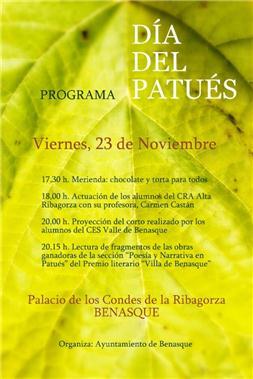El Consell d’Europa recomana mantenir el català i l’aragonès a la Llei de llengües « Xarxes socials i llengües.
 L’Estat espanyol va signar la Carta Europea de les Llengües Regionals o Minoritàries, per la qual es comprometia a preservar les llengües minoritàries. Aquest acord se signava en el sí del Consell d’Europa (que no és el mateix que la Unió Europea). Els Informes sobre el compliment de la Carta han criticat reiteradament l’incompliment dels compromisos de l’Estat, i s’ha fixat moltes vegades en l‘incompliment que el Govern d’Aragó en fa respecte el català i l’aragonès. Fa pocs dies s’ha fet públic l’últim informe, en el qual recrimina que el Govern d’Aragó (PP-PAR) vol excloure el català i l’aragonès de la Llei de llengües.
L’Estat espanyol va signar la Carta Europea de les Llengües Regionals o Minoritàries, per la qual es comprometia a preservar les llengües minoritàries. Aquest acord se signava en el sí del Consell d’Europa (que no és el mateix que la Unió Europea). Els Informes sobre el compliment de la Carta han criticat reiteradament l’incompliment dels compromisos de l’Estat, i s’ha fixat moltes vegades en l‘incompliment que el Govern d’Aragó en fa respecte el català i l’aragonès. Fa pocs dies s’ha fet públic l’últim informe, en el qual recrimina que el Govern d’Aragó (PP-PAR) vol excloure el català i l’aragonès de la Llei de llengües.
Bàsicament, destaca que l’Estatut d’Autonomia aragonès reconeix l’existència de les modalitats lingüístiques, que evidentment són el català i l’aragonès. Xifra el nombre de parlants de català en 30.000, mentre que les estimacions que més ajustades situen el nombre total de parlants a la Franja en 42.000. S’apunta que la despoblació està afectant la situació de la llengua.
Pel que fa a les recomanacions, considera que el marc legal ha estat adoptat a travès de l’Estatut, que salvaguarda les llengües i modalitats lingüístiques, i la Llei de llengües de 2009, de la que destaca les referències als mateixos acords de l’Estat amb la Carta de les Llengües i els drets dels parlants amb les autoritats i l’ensenyament. Amb tot, expliquen que el Comitè d’Experts és informat durant la seua visita al territori que al llarg de la campanya electoral el partit guanya les eleccions va anunciar l’abolició d’aquesta Llei de llengües, i ho ratifica posteriorment. És per això que textualment es diu “en vista de la informació rebuda sobre els plans de modificació de la Llei de Llengües d’Aragó, el Comitè d’Experts insta les autoritats a mantenir l’actual nivell legal de protecció de l’aragonès i el català, almenys“. Finalment s’informa que el Comitè d’Experts espera amb interès rebre informació sobre el desenvolupament de la política lingüística en el proper informe periòdic.
La repercussió d’este Informe en la premsa aragonesa ha estat nul, si exceptuem Arredol. Ni l’Heraldo ni El Periódico de Aragón n’han fet menció alguna (vegeu els resultats a Google News). La realitat que no apareix a la premsa no és tanta realitat. A Aragó ni la premsa progressista ni la conservadora tenen cap interès pel futur de les llengües, si no va lligada amb polèmiques i conflicte. En tot cas, l’ABC és capaç de tergiversar els experts per a dir que el Consell ha felicitat l’Estat pel seu tracte de les llengües. I fins i tot es capaç de negar que el català es parla a Aragó, o culpabilitzant els catalans que el Ministeri de Foment citare pobles de Franja com a lleidatans.
En tot cas, la notícia positiva de la setmana és que l’Ajuntament de Saragossa ha aprovat una moció favorable al català i l’aragonès.
Les cites textuals del Consell d’Europa respecte el català a la Franja i l’aragonès són les següents:
7. As regards Part II of the Charter, Spain declared that the languages protected by the Statutes of Autonomy in the territories where they are traditionally spoken are also considered as regional or minority languages. The Committee of Experts interprets this declaration as presently covering the following languages: Galician in Castile and León and Extremadura, Aragonese and Catalan in Aragon, Asturian and Asturian-Galician in Asturias, and Leonese in Castile and León.
Aragonese and Catalan in Aragon
59. According to the third periodical report (pages 53 – 54), the most favourable estimates for Aragonese lie at 10 000 speakers inhabiting various parts of Aragon. Representatives of the speakers during the on-the-spot visit however estimated that there are 25 000 speakers.
60. As for Catalan, no updated figures are available. According to estimations based on two surveys carried out in 2004, approximately 30 000 people speak Catalan in Aragon, located in the eastern fringe of Aragon. Depopulation is affecting the language.
Recommendation no. 5:
“Take steps to adopt a specific legal framework for protecting and promoting Aragonese and Catalan in Aragon.”
102. The legal framework for the protection and promotion of Aragonese and Catalan in Aragon has been adopted through the Organic Law 5/2007 of 20 April on the Statute of Autonomy of Aragon regarding native languages and linguistic modalities and Law 10/2009 of 22 December on the use, protection and promotion of Aragon’s native languages.
103. The Law stipulates that Aragonese- and Catalan-speakers have the right to use their languages in those territories where they have been predominant historically especially in relation to public authorities (Article 2) and in education (Article 23).
Aragonese and Catalan in Aragon
115. Article 7 of Organic Law 5/2007 of 20 April on the Statute of Autonomy of Aragon regarding native languages and linguistic modalities declares that:
“1. The languages and linguistic modalities native to Aragon constitute one of the most outstanding expressions of Aragonese cultural and historical heritage and a social value of respect, coexistence and understanding.
2. A law from the Legislature of Aragon shall establish predominant use of the languages and modalities native to Aragon, regulate the legal framework, the usage rights of the speakers from those territories, promote the protection, recovery, teaching, promotion and dissemination of Aragon’s linguistic heritage and encourage in the areas of predominant usage the use of the native languages in citizens’ relations with the Aragonese public administrations.
3. No-one can be discriminated against on grounds of language”.
116. Accordingly, the Aragonese Parliament adopted Law 10/2009 of 22 December on the use, protection and promotion of Aragon’s native languages. While commending the authorities for strengthening the legal framework for Aragonese and Catalan, the Committee of Experts was informed during the on-the-spot visit by representatives of the speakers that during the election campaign the party which later won the elections had announced the abolishment of this Language Act. Shortly after the visit the Committee of Experts was informed that the newly elected Government declared that only some aspects of the Law would be amended.
117. As it stood at the time of the on-the-spot visit, the preamble to the Law on Languages in Aragon makes reference to the Charter and the Law itself incorporates the wording of several undertakings from Articles under Part III of the Charter. The Law stipulates that Aragonese- and Catalan-speakers have the right to use their language in those territories where they have been predominant historically, especially in relation to public authorities (Article 2) and in education (Article 23). Article 9 states that the procedure for declaring which municipalities belong to the predominant areas of historical use of native languages will be determined by the Government of Aragon on the basis of a report by the Superior Council of Languages of Aragon (see paragraph 246 below), and according to sociolinguistic and historical criteria.
118. In the light of the information received of plans to amend the Law on Languages in Aragon, the Committee of Experts urges the authorities to at least maintain the current legal level of protection afforded to Aragonese and Catalan.
Aragonese and Catalan in Aragon
133. In the second evaluation report (paragraph 118), the Committee of Experts urged the competent authorities to accelerate the adoption of a specific legal framework for protecting and promoting Aragonese and Catalan in Aragon, and to take relevant measures to protect and promote Aragonese and Catalan in Aragon.
134. As mentioned in paragraphs 115-118 above, the legal framework for the protection and promotion of Aragonese and Catalan in Aragon has been adopted. In accordance with Article 3 of the Act, the Superior Council of the Languages of Aragon was set up and held its first meeting in December 2010. The task of this advisory body, composed of 15 members proposed by the Aragonese Government, the Aragonese Parliament and the University of Zaragoza, is to develop a language policy.
135. The Committee of Experts looks forward to receiving information on the development of the language policy in the next periodical report.







